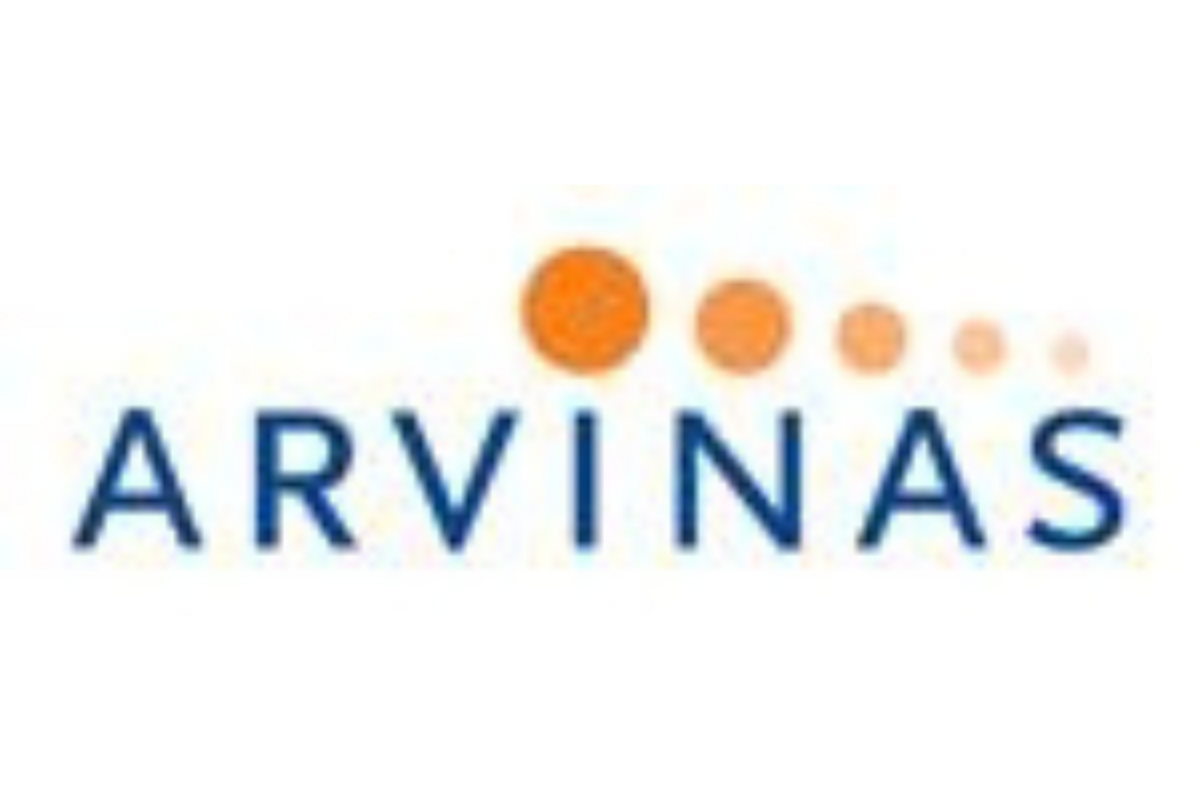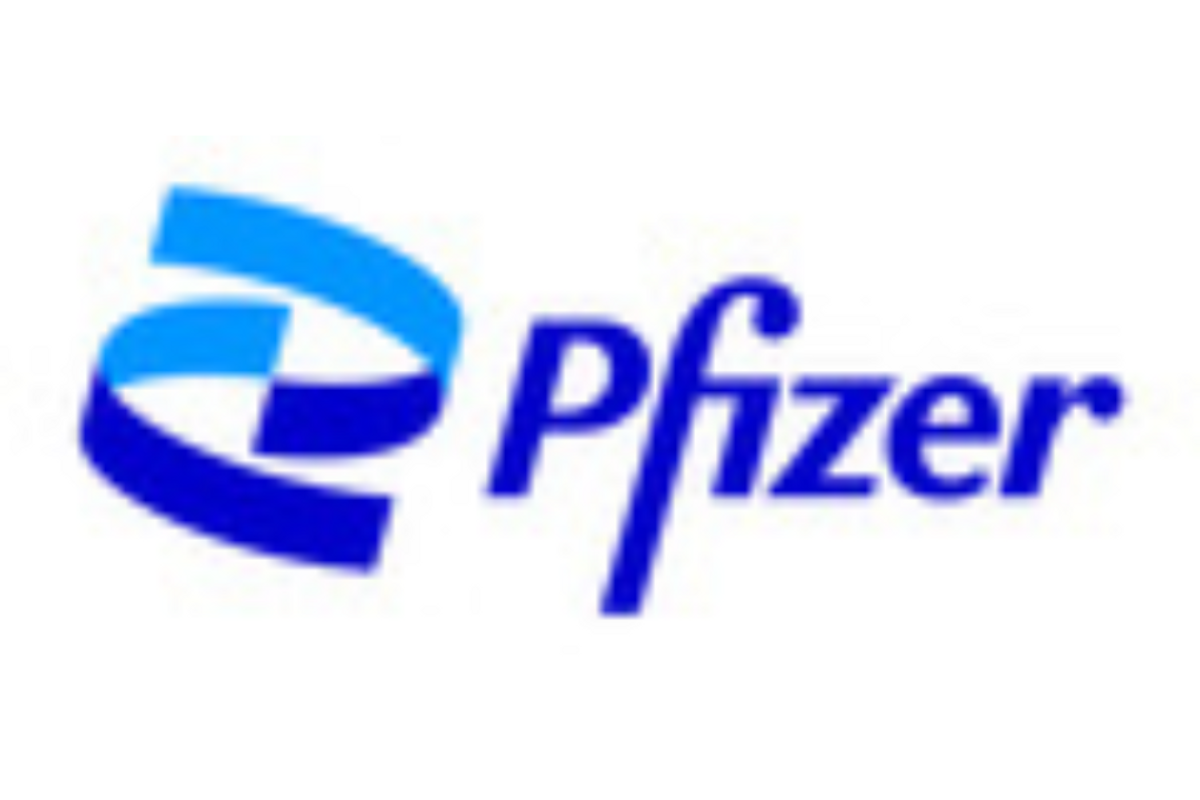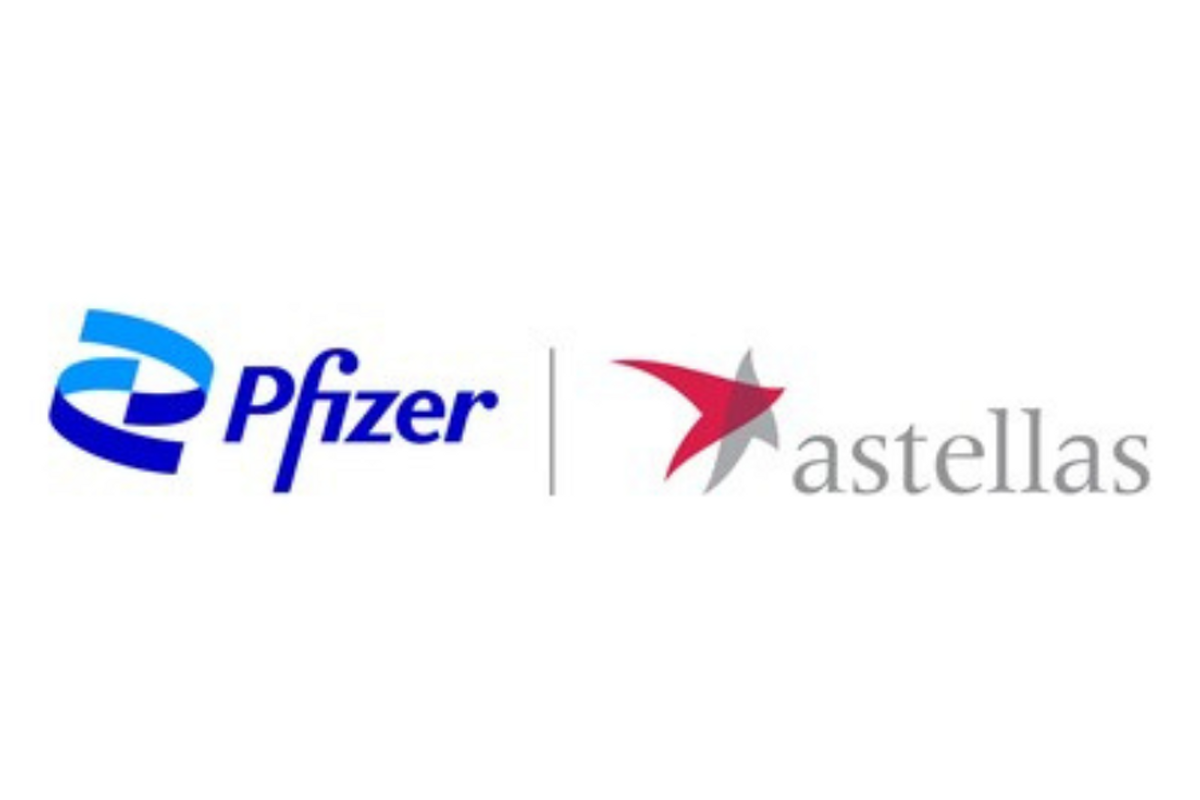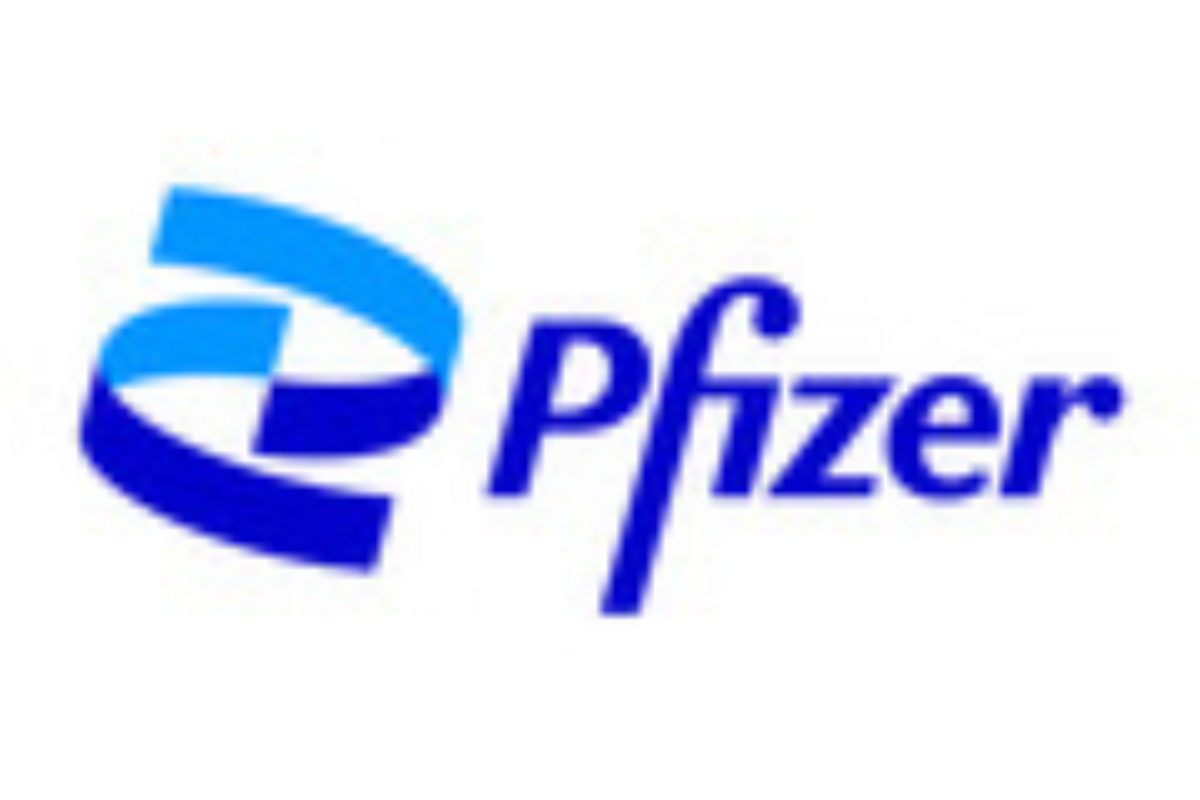- Expansion will create more than 250 additional high-skilled manufacturing jobs at Pfizer's Kalamazoo site
Pfizer Inc. (NYSE: PFE) announced today that it will further strengthen its commitment to United States manufacturing with a $120 million investment at its Kalamazoo, Michigan, facility, enabling U.S.-based production in support of its COVID-19 oral treatment, PAXLOVID TM (nirmatrelvir [PF-07321332] tablets and ritonavir tablets). The investment will expand the production of active pharmaceutical ingredient (API) and registered starting materials (RSMs) used in the manufacture of nirmatrelvir, a novel main protease (M pro ) inhibitor originating in Pfizer's laboratories, which will create more than 250 additional high-skilled jobs at Pfizer's Kalamazoo site. This investment is another major step in Pfizer's effort to bring more key biopharmaceutical manufacturing to the U.S., increasing Pfizer's capability to produce and supply treatments and medicines for patients in the U.S. and around the world.
"Pfizer Global Supply has made the impossible possible, making billions of vaccine doses and now millions of treatment courses to help battle the deadly COVID-19 pandemic," said Albert Bourla, Chairman and Chief Executive Officer, Pfizer. "By increasing production at our Michigan facility, we are both helping patients around the world and expanding important manufacturing innovation to the U.S. This investment builds upon our $5 billion of investments across our manufacturing and distribution portfolio since 2017 to support the ongoing growth of U.S. manufacturing leadership."
RSMs are the raw materials that are chemically converted into API, which is the active ingredient in a medicine. Producing PAXLOVID requires a significant amount of manufacturing capacity across all aspects of the production process. To date, Pfizer has shipped 12 million courses of PAXLOVID across 37 countries, including 5 million courses shipped to the U.S., and has manufactured almost 17 million treatment courses total. The significant investment being made in stateside API and RSM production for nirmatrelvir will allow Pfizer to increase supply capacity for PAXLOVID as needed to help meet global demand. With this new investment, Kalamazoo will be among the world's largest producers of API, with the capacity to produce 1,200 metric tons annually.
"Pfizer's $120 million expansion in Kalamazoo creating 250 good-paying jobs to support the manufacture of PAXLOVID will build on Michigan's economic momentum," said Governor Gretchen Whitmer. "Pfizer's Kalamazoo facility also made some of the first doses of the vaccine, and now this proud Michigan company will play an even more critical role in the fight against COVID-19. By creating opportunities for Michiganders, Pfizer is helping us grow our economy, create good-paying jobs, and help families."
Pfizer also plans to expand its Modular Aseptic Processing (MAP) sterile injectable pharmaceutical production facility in Kalamazoo with a phase two investment. The expansion adds to the initial investment of $450 million in phase one to build a 400,000-square-foot production facility and further establishes Kalamazoo as one of the most technically advanced sterile injectable pharmaceutical production facilities in the world.
"Pfizer's Kalamazoo facility has been at the forefront of pharmaceutical manufacturing for more than 135 years through the legacy company Upjohn," said Mike McDermott, Chief Global Supply Officer, Pfizer. "The Kalamazoo facility uses some of our most innovative manufacturing technology and has been essential in Pfizer's fight against COVID-19, producing nearly one billion doses of COVID-19 vaccine at the site to date. Through this expansion, we will continue to invest in the next generation of manufacturing and supply chain resilience."
Results from Pfizer's EPIC-HR (Evaluation of Protease Inhibition for COVID-19 in High-Risk Patients) study showed an 88% reduction in COVID-19-related hospitalization or death from any cause in adults treated with PAXLOVID compared to placebo within five days of symptom onset. PAXLOVID is currently approved or authorized for conditional or emergency use in more than 60 countries across the globe to treat high-risk COVID-19 patients.
To learn more about Pfizer's manufacturing and global supply, visit www.pfizer.com/pgs .
About the EPIC-HR Final Results
In the final analysis of the primary endpoint from all patients enrolled in EPIC-HR, an 89% reduction in COVID-19-related hospitalization or death from any cause compared to placebo in patients treated within three days of symptom onset was observed, consistent with the interim analysis. In addition, a consistent safety profile was observed.
0.7% of patients who received PAXLOVID were hospitalized through Day 28 following randomization (5/697 hospitalized with no deaths) compared to 6.5% of patients who received placebo and were hospitalized or died (44/682 hospitalized with 9 subsequent deaths). The statistical significance of these results was high (p
Treatment-emergent adverse events were comparable between PAXLOVID (23%) and placebo (24%), most of which were mild in intensity. Fewer serious adverse events (1.6% vs. 6.6%) and discontinuations of study drug due to adverse events (2.1% vs. 4.2%) were observed in patients dosed with PAXLOVID compared to placebo, respectively.
All other secondary endpoints for this study are available on clinicaltrials.gov (NCT04960202) and EudraCT (2021-002895-38).
U.S. FDA Emergency Use Authorization Statement
PAXLOVID has not been approved but has been authorized for emergency use by FDA under an EUA, for the treatment of mild-to-moderate COVID-19 in adults and pediatric patients (12 years of age and older weighing at least 40 kg) with positive results of direct SARS CoV-2 viral testing, and who are at high-risk for progression to severe COVID-19, including hospitalization or death.
The emergency use of PAXLOVID is only authorized for the duration of the declaration that circumstances exist justifying the authorization of the emergency use of drugs and biological products during the COVID-19 pandemic under Section 564(b)(1) of the Act, 21 U.S.C. § 360bbb-3(b)(1), unless the declaration is terminated or authorization revoked sooner.
AUTHORIZED USE
The U.S. Food and Drug Administration (FDA) has issued an Emergency Use Authorization (EUA) for the emergency use of the unapproved product PAXLOVID for the treatment of mild-to-moderate coronavirus disease 2019 (COVID-19) in adults and pediatric patients (12 years of age and older weighing at least 40 kg) with positive results of direct severe acute respiratory syndrome coronavirus 2 (SARS-CoV-2) viral testing, and who are at high risk for progression to severe COVID-19, including hospitalization or death.
LIMITATIONS OF AUTHORIZED USE
- PAXLOVID is not authorized for initiation of treatment in patients requiring hospitalization due to severe or critical COVID-19
- PAXLOVID is not authorized for use as pre-exposure or post-exposure prophylaxis for prevention of COVID-19
- PAXLOVID is not authorized for use for longer than 5 consecutive days
PAXLOVID may only be prescribed for an individual patient by physicians, advanced practice registered nurses, and physician assistants that are licensed or authorized under state law to prescribe drugs in the therapeutic class to which PAXLOVID belongs (i.e., anti-infectives).
PAXLOVID is not approved for any use, including for use for the treatment of COVID-19.
PAXLOVID is authorized only for the duration of the declaration that circumstances exist justifying the authorization of the emergency use of PAXLOVID under 564(b)(1) of the Food Drug and Cosmetic Act unless the authorization is terminated or revoked sooner.
IMPORTANT SAFETY INFORMATION
PAXLOVID is contraindicated in patients with a history of clinically significant hypersensitivity reactions (eg, toxic epidermal necrolysis [TEN] or Stevens-Johnson syndrome) to its active ingredients (nirmatrelvir or ritonavir) or any other components of the product.
PAXLOVID is contraindicated with drugs that are highly dependent on CYP3A for clearance and for which elevated concentrations are associated with serious and/or life-threatening reactions:
- Alpha 1 -adrenoreceptor antagonist: alfuzosin
- Analgesics: pethidine, propoxyphene
- Antianginal: ranolazine
- Antiarrhythmic: amiodarone, dronedarone, flecainide, propafenone, quinidine
- Anti-gout: colchicine
- Antipsychotics: lurasidone, pimozide, clozapine
- Ergot derivatives: dihydroergotamine, ergotamine, methylergonovine
- HMG-CoA reductase inhibitors: lovastatin, simvastatin
- PDE5 inhibitor: sildenafil (Revatio ® ) when used for pulmonary arterial hypertension
- Sedative/hypnotics: triazolam, oral midazolam
PAXLOVID is contraindicated with drugs that are potent CYP3A inducers where significantly reduced nirmatrelvir or ritonavir plasma concentrations may be associated with the potential for loss of virologic response and possible resistance. PAXLOVID cannot be started immediately after discontinuation of any of the following medications due to the delayed offset of the recently discontinued CYP3A inducer:
- Anticancer drugs: apalutamide
- Anticonvulsant: carbamazepine, phenobarbital, phenytoin
- Antimycobacterials: rifampin
- Herbal Products: St. John's Wort ( hypericum perforatum )
There are limited clinical data available for PAXLOVID. Serious and unexpected adverse events may occur that have not been previously reported with PAXLOVID use.
Risk of Serious Adverse Reactions Due to Drug Interactions: Initiation of PAXLOVID, a CYP3A inhibitor, in patients receiving medications metabolized by CYP3A or initiation of medications metabolized by CYP3A in patients already receiving PAXLOVID, may increase plasma concentrations of medications metabolized by CYP3A. Initiation of medications that inhibit or induce CYP3A may increase or decrease concentrations of PAXLOVID, respectively. These interactions may lead to:
- Clinically significant adverse reactions, potentially leading to severe, life-threatening, or fatal events from greater exposures of concomitant medications
- Clinically significant adverse reactions from greater exposures of PAXLOVID
- Loss of therapeutic effect of PAXLOVID and possible development of viral resistance
Consult Table 1 of the Fact Sheet for Healthcare Providers for clinically significant drug interactions, including contraindicated drugs. Consider the potential for drug interactions prior to and during PAXLOVID therapy; review concomitant medications during PAXLOVID therapy and monitor for the adverse reactions associated with the concomitant medications.
Hypersensitivity reactions have been reported with PAXLOVID including urticaria, angioedema, dyspnea, mild skin eruptions, and pruritus. Cases of anaphylaxis, TEN, and Stevens-Johnson syndrome have also been reported with components of PAXLOVID (refer to NORVIR labeling). If signs and symptoms of a clinically significant hypersensitivity reaction or anaphylaxis occur, immediately discontinue PAXLOVID and initiate appropriate medications and/or supportive care.
Hepatotoxicity: Hepatic transaminase elevations, clinical hepatitis, and jaundice have occurred in patients receiving ritonavir. Therefore, caution should be exercised when administering PAXLOVID to patients with pre-existing liver diseases, liver enzyme abnormalities, or hepatitis .
Because nirmatrelvir is co-administered with ritonavir, there may be a risk ofHIV-1 developing resistance to HIV protease inhibitors in individuals with uncontrolled or undiagnosed HIV-1 infection.
Adverse events in the PAXLOVID group (≥1%) that occurred at a greater frequency (≥5 subject difference) than in the placebo group were dysgeusia (6% and
The following adverse reactions have been identified during post-authorization use of PAXLOVID. Because these reactions are reported voluntarily from a population of uncertain size, it is not always possible to reliably estimate their frequency or establish a causal relationship to drug exposure.
Immune System Disorders: Hypersensitivity reactions
Required Reporting for Serious Adverse Events and Medication Errors: The prescribing healthcare provider and/or the provider's designee is/are responsible for mandatory reporting of all serious adverse events and medication errors potentially related to PAXLOVID within 7 calendar days from the healthcare provider's awareness of the event.
Submit adverse event and medication error reports to FDA MedWatch using one of the following methods:
- Online: https://www.fda.gov/medwatch/report.htm
- Complete and submit a postage-paid FDA Form 3500 and returning by mail/fax
- Call 1-800-FDA-1088 to request a reporting form
In addition, please provide a copy of all FDA MedWatch forms to: https://www.pfizersafetyreporting.com/ or by fax (1-866-635-8337) or phone (1-800-438-1985).
PAXLOVID is an inhibitor of CYP3A and may increase plasma concentrations of drugs that are primarily metabolized by CYP3A. Co-administration of PAXLOVID with drugs highly dependent on CYP3A for clearance and for which elevated plasma concentrations are associated with serious and/or life-threatening events is contraindicated. Co-administration with other CYP3A substrates may require a dose adjustment or additional monitoring.
Nirmatrelvir and ritonavir are CYP3A substrates; therefore, drugs that induce CYP3A may decrease nirmatrelvir and ritonavir plasma concentrations and reduce PAXLOVID therapeutic effect.
Pregnancy: There are no available human data on the use of nirmatrelvir during pregnancy to evaluate for a drug-associated risk of major birth defects, miscarriage, or adverse maternal or fetal outcomes. Published observational studies on ritonavir use in pregnant women have not identified an increase in the risk of major birth defects. Published studies with ritonavir are insufficient to identify a drug-associated risk of miscarriage . There are maternal and fetal risks associated with untreated COVID-19 in pregnancy.
Lactation: There are no available data on the presence of nirmatrelvir in human or animal milk, the effects on the breastfed infant, or the effects on milk production. A transient decrease in body weight was observed in the nursing offspring of rats administered nirmatrelvir. Limited published data reports that ritonavir is present in human milk. There is no information on the effects of ritonavir on the breastfed infant or the effects of the drug on milk production. The developmental and health benefits of breastfeeding should be considered along with the mother's clinical need for PAXLOVID and any potential adverse effects on the breastfed infant from PAXLOVID or from the underlying maternal condition. Breastfeeding individuals with COVID-19 should follow practices according to clinical guidelines to avoid exposing the infant to COVID-19.
Contraception: Use of ritonavir may reduce the efficacy of combined hormonal contraceptives. Advise patients using combined hormonal contraceptives to use an effective alternative contraceptive method or an additional barrier method of contraception.
Pediatrics: PAXLOVID is not authorized for use in pediatric patients younger than 12 years of age or weighing less than 40 kg. The safety and effectiveness of PAXLOVID have not been established in pediatric patients. The authorized adult dosing regimen is expected to result in comparable serum exposures of nirmatrelvir and ritonavir in patients 12 years of age and older and weighing at least 40 kg as observed in adults, and adults with similar body weight were included in the trial EPIC-HR.
Systemic exposure of nirmatrelvir increases in renally impaired patients with increase in the severity of renal impairment. No dosage adjustment is needed in patients with mild renal impairment. In patients with moderate renal impairment (eGFR ≥30 to to 150 mg nirmatrelvir and 100 mg ritonavir twice daily for 5 days. Prescriptions should specify the numeric dose of each active ingredient within PAXLOVID. Providers should counsel patients about renal dosing instructions. PAXLOVID is not recommended in patients with severe renal impairment (eGFR
No dosage adjustment of PAXLOVID is needed for patients with either mild (Child-Pugh Class A) or moderate (Child-Pugh Class B) hepatic impairment. No pharmacokinetic or safety data are available regarding the use of nirmatrelvir or ritonavir in subjects with severe hepatic impairment (Child-Pugh Class C); therefore, PAXLOVID is not recommended for use in patients with severe hepatic impairment.
About Pfizer: Breakthroughs That Change Patients' Lives
At Pfizer, we apply science and our global resources to bring therapies to people that extend and significantly improve their lives. We strive to set the standard for quality, safety and value in the discovery, development and manufacture of health care products, including innovative medicines and vaccines. Every day, Pfizer colleagues work across developed and emerging markets to advance wellness, prevention, treatments and cures that challenge the most feared diseases of our time. Consistent with our responsibility as one of the world's premier innovative biopharmaceutical companies, we collaborate with health care providers, governments and local communities to support and expand access to reliable, affordable health care around the world. For more than 170 years, we have worked to make a difference for all who rely on us. We routinely post information that may be important to investors on our website at www.Pfizer.com . In addition, to learn more, please visit us on www.Pfizer.com and follow us on Twitter at @Pfizer and @Pfizer News , LinkedIn , YouTube and like us on Facebook at Facebook.com/Pfizer .
Disclosure Notice
The information contained in this release is as of June 6, 2022. Pfizer assumes no obligation to update forward-looking statements contained in this statement as the result of new information or future events or developments.
This release contains forward-looking information about Pfizer's efforts to combat COVID-19 and PAXLOVID (including qualitative assessments of available data, potential benefits, expectations for clinical trials, the anticipated timing of data readouts, regulatory submissions, regulatory approvals or authorizations, use in high risk COVID-19 patients, planned investment and anticipated manufacturing, distribution and supply, including a planned investment at Pfizer's Kalamazoo, Michigan facility), as well as a planned expansion of Pfizer's MAP sterile injectable pharmaceutical production facility in Kalamazoo, involving substantial risks and uncertainties that could cause actual results to differ materially from those expressed or implied by such statements. Risks and uncertainties include, among other things, the uncertainties inherent in research and development, including the ability to meet anticipated clinical endpoints, commencement and/or completion dates for clinical trials, regulatory submission dates, regulatory approval dates and/or launch dates, as well as risks associated with preclinical and clinical data, including the possibility of unfavorable new preclinical, clinical or safety data and further analyses of existing preclinical, clinical or safety data, including the risk that final results from EPIC-SR could differ from the interim data; the ability to produce comparable clinical or other results including efficacy, safety and tolerability profile observed to date, in additional studies or in larger, more diverse populations following commercialization; uncertainties regarding the commercial impact of the results of the EPIC-PEP trial; the ability of PAXLOVID to maintain efficacy against emerging virus variants; the risk that serious and unexpected adverse events may occur that have not been previously reported with PAXLOVID use; the risk that preclinical and clinical trial data are subject to differing interpretations and assessments, including during the peer review/publication process, in the scientific community generally, and by regulatory authorities; whether regulatory authorities will be satisfied with the design of and results from these and any future preclinical and clinical studies; whether and when any drug applications or submissions to request emergency use or conditional marketing authorization for any potential indications for PAXLOVID may be filed in particular jurisdictions and if obtained, whether or when such emergency use authorization or licenses will expire or terminate; whether and when regulatory authorities in any jurisdictions may approve any applications or submissions for PAXLOVID that may be pending or filed (including a potential new drug application submission in the U.S. and submissions in other jurisdictions), which will depend on myriad factors, including making a determination as to whether the product's benefits outweigh its known risks and determination of the product's efficacy and, if approved, whether it will be commercially successful; decisions by regulatory authorities impacting labeling or marketing, manufacturing processes, safety and/or other matters that could affect the availability or commercial potential of PAXLOVID, including development of products or therapies by other companies; risks related to the availability of raw materials for PAXLOVID; the risk that we may not be able to create or scale up manufacturing capacity on a timely basis or maintain access to logistics or supply channels commensurate with global demand, which would negatively impact our ability to supply the estimated numbers of courses of PAXLOVID within the projected time periods; whether and when additional purchase agreements will be reached; the risk that demand for any products may be reduced or no longer exist; uncertainties regarding the impact of COVID-19 on Pfizer's business, operations and financial results; risks related to the ability to realize the anticipated benefits of the planned investments and the ability to complete the expansions and begin production in the anticipated timeframe or at all; other business effects, including the effects of industry, market, economic, political or regulatory conditions; and competitive developments.
A further description of risks and uncertainties can be found in Pfizer's Annual Report on Form 10-K for the fiscal year ended December 31, 2021 and in its subsequent reports on Form 10-Q, including in the sections thereof captioned "Risk Factors" and "Forward-Looking Information and Factors That May Affect Future Results", as well as in its subsequent reports on Form 8-K, all of which are filed with the U.S. Securities and Exchange Commission and available at www.sec.gov and www.pfizer.com .
View source version on businesswire.com: https://www.businesswire.com/news/home/20220606005318/en/
Pfizer:
Media Relations
+1 (212) 733-1226
PfizerMediaRelations@pfizer.com
Investor Relations
+1 (212) 733-4848
IR@pfizer.com







